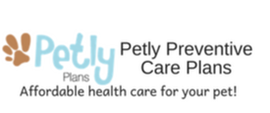- Home
- About
- Services
- Petly
-
Forms
- Client Registration Form
- Pre-Visit Forms >
- History to Assess your Cat's Mental Health
- Fear Free Pre-Visit Questionnaire
- Cat Pain & Osteoarthritis Checklist
- Dog Osteoarthritis Checklist
- Boarding Admission Form & Consent
- Surgery/Pre-Anesthetic Form
- Send Medical Records
- Employment Application
- Angel Fund Adoption Application
- Cat House-Soiling Questionnaire
- International Health Certificate
- Shop
- Employment
- Contact
- Resources
- Home
- About
- Services
- Petly
-
Forms
- Client Registration Form
- Pre-Visit Forms >
- History to Assess your Cat's Mental Health
- Fear Free Pre-Visit Questionnaire
- Cat Pain & Osteoarthritis Checklist
- Dog Osteoarthritis Checklist
- Boarding Admission Form & Consent
- Surgery/Pre-Anesthetic Form
- Send Medical Records
- Employment Application
- Angel Fund Adoption Application
- Cat House-Soiling Questionnaire
- International Health Certificate
- Shop
- Employment
- Contact
- Resources






